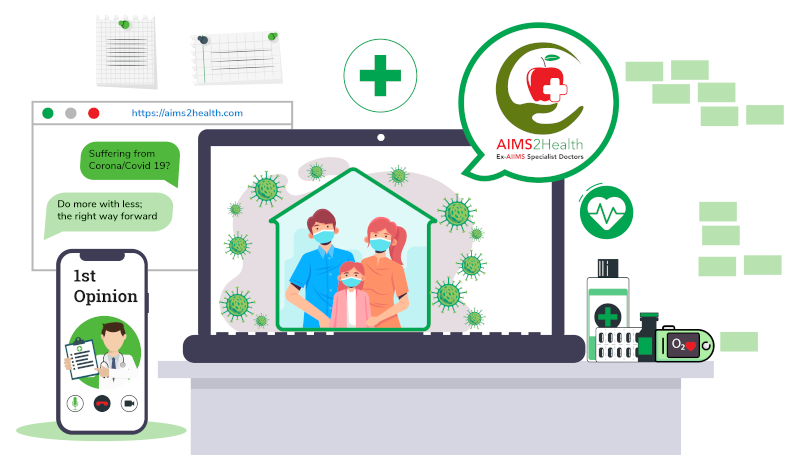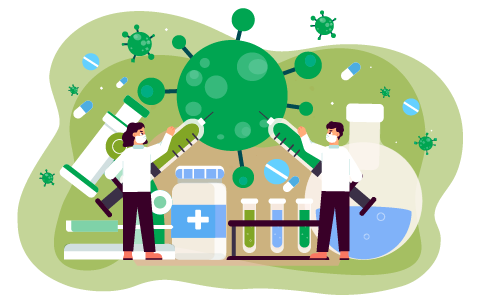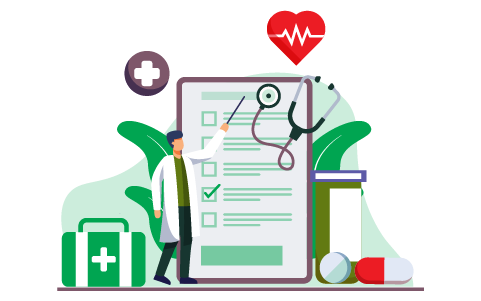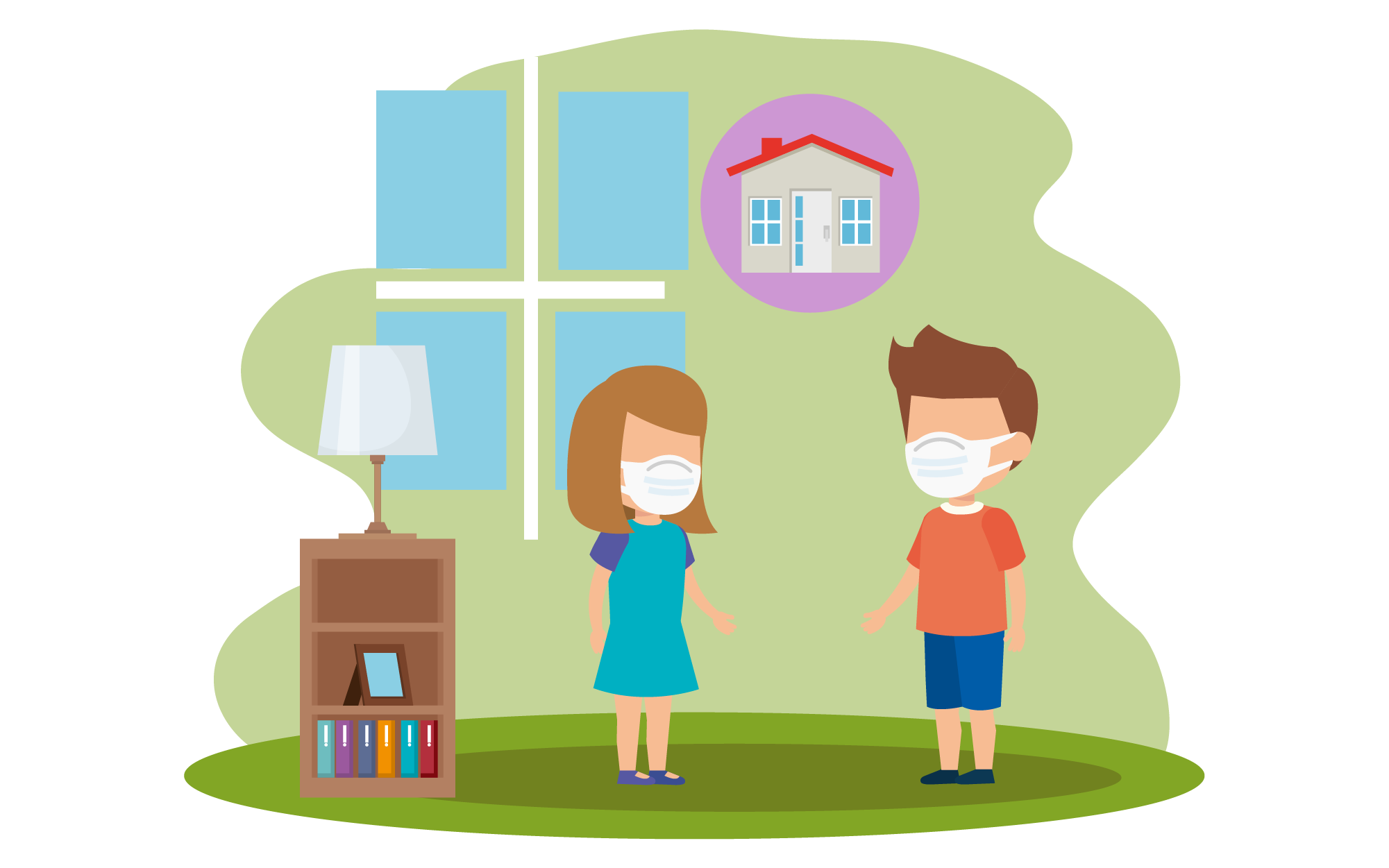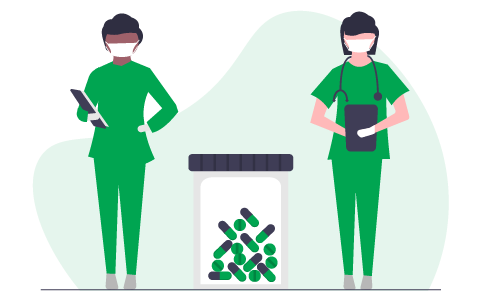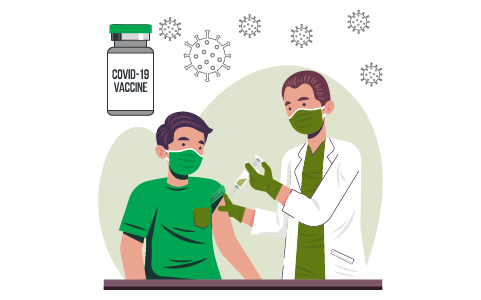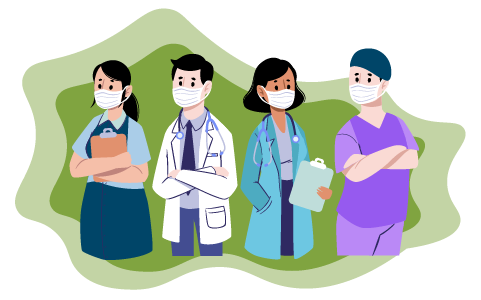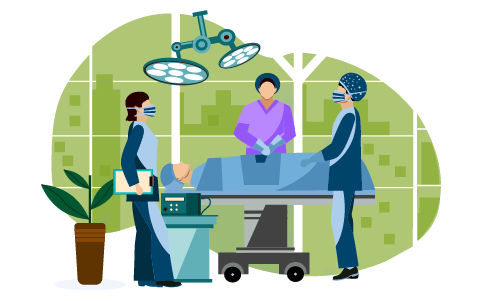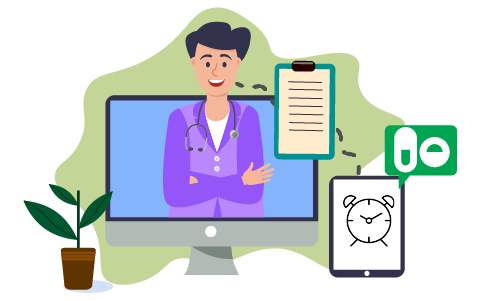Q-1: I am running fever for three days, should I go for RT-PCR/Rapid Antigen Test/CBNAAT?
In the current situation ( April 2021), it is presumed you have Covid 19 infection. Treat accordingly. If available, get RT-PCR test done for COVID 19. Only if RT-PCR test facility is not there, Rapid Antigen Test or CBNAAT may be done.
Q-2: I am running fever for 3 days, and my RT-PCR result for COVID 19 is positive. What all should I do? Which tests and what medicine should I take?
- General Care:
- Strict isolation at home.
All positive patients in the same house can live in the same room. - Monitor your temperature six hourly. If temperature rises above 101, take tab paracetamol 650mg. Temperature, only above 101 is considered high temperature.
- Monitoring blood oxygen level by pulse oximeter, 6 hourly. If reading 94 or higher,
nothing to worry. If reading drops <94, start deep breathing exercises (Pranayam). Lie on your tummy
(not on your back) for as long as you can; this will make your oxygen level better. If not getting
better, see if you can do a six minute walk test.
* Please note that the period in which oxygen level may fall is generally from day 5 to day 11 from the date of onset of first symptom. If lying in prone position or six minute does not improve level above 94%, then supplemental oxygen is needed. - Normal diet (Patient with comorbidities need to continue to follow illness specific dietary restrictions).
- Drink sufficient fluids (Patient with comorbidities need to adjust fluid intake as needs to be for each specific comorbidity).
- Strict isolation at home.
- Blood Tests:
Normally, no blood test is needed in mild cases. In those with severe symptoms (high fever, severe diarrhoea, severe fatigue etc.), the following tests may be done (fasting) as baseline:- CBC
- CRP
- LFT
- Treatment:
There is no specific treatment for COVID 19 (Corona virus infection). Only treatment for relief of symptoms is needed.- For fever/body pains/headache: Paracetamol SOS.
- Sore throat: warm saline gargles.
- Throat irritation, sneezing or running nose: Tab Levocetirizine (any brand): One tab once a day.
- Dry Cough: Tab Levocetirizine 5 or 10 mg; one tab per day
- Wet Cough (with phlegm/sputum): Ambroxol Syrup (any brand), 1 or 2, tea spoons thrice daily.
- Loose motions:
- Take Electral Oral Rehydration Powder, as many times as needed;
- In severe diarrhoea, Tab Imodium 2 mg as needed (Not to be given to those above 65 years)
- Also take Curd, at-least once a day.
- Eat light meals, high protein.
- General immunity boosters: a. Tab Zinc 50 mg (Tab Zinconia) for 15 days. Tablet Vit C 500 mg for 15 days
- Those with co-morbidities
such as obesity, diabetes, high BP, asthma, kidney disease,
smokers, chronic chest diseases, history of lung tuberculosis, etc):
- Continue all medicines already being taken for chronic illnesses like high BP, diabetes, thyroid illnesses, asthma, cancer, arthritis, etc
- They may also do the following tests, in addition (on advice of your doctor): Serum Ferritin, LDH, D-Dimer, Interleukin 6. These tests are NOT a must.
- Those above 70 years of age or who have diabetes, hypertension or kidney disease, also do KFT.
- Need for HRCT chest:
For Covid positive patients, HRCT is needed only in selected cases. It is NOT to be done as a screening tool.Those with normal oxygen levels on room air or low flow oxygen don’t need HRCT.- HRCT Indications:
- COVID RT-PCR negative pts who are having severe cough or very high fever for more than five days. In such cases CT helps in diagnosis of COVID.
- COVID RT-PCR positive patients with deterioration in clinical parameters such as falling oxygen levels more than 4% from normal level.
- Symptomatic patients who are not getting access to RT-PCR with wait-time of upto 5 days from onset of symptoms such as fever or breathlessness.
- Those in severe shortness of breath, or have severe cough with or without sputum, with or without positive or negative RT-PCR/Rapid antigen.
- Steroid (Cortisone): Steroid is an important medicine, but is a
double-edged sword. Hence, it has
to be
used with care.
Steroids Should NOT be used within 7 days from first symptom (fever or any other symptom), when virus is flowing in the blood (viremia), it can cause virus to grow faster, and thus prove harmful.
Steroid in puff form should be used If symptoms (fever and cough) are severe, particularly after five days - no tablets or injections.
Oral / injectable steroids to be used (under direction of a doctor):
- If severe symptoms (Cough, high fever) persist beyond 7 days. It suggests excessive inflammation. If SPO2 is maintained, one may add low-dose oral steroids. (eg. Dexamethasone/ Methyl prednisolone / Prednisolone).
- If the patients are worsening (usually happens after 7 days, may happen earlier rarely), when spO2 is dropping below 94%. Here steroid is given to counter lung involvement (excessive inflammation). One may need to double the dose in severe cases. Steroid given in diabetics and those with high blood pressure, need monitoring of blood sugar and blood pressure. Steroids for 5 days do not need tapering.
- Note:
- Please do not give/take Fabiflu (Favipiravir), Ivermectin, or Doxycycline, Azithromycin, Augmentin or any other antibiotic. None of these have any proven role. These may harm the patient as all medicines have side effects. Most common side effects of most of these drugs are nausea, vomiting, abdominal pain, loose motions. These unfortunately are also symptoms of the illness.
- Neither Inj Remdesivir nor convalescent plasma is of proven value. In fact, they have been taken away from list of recommended medication for Covid (ref below***). Some people still prescribe it, more as a ‘last resort’ to satisfy themselves. Do not worry too much if these cannot be arranged. Neither of these will change the final outcome.
- Much more important than blood tests or HRCT of chest findings is the oxygen saturation level as seen in the finger oximeter. This is the key to management of Covid 19.
- Covid sometimes presents with other symptoms such as loss of smell or taste, common cold like symptoms, severe diarrhea, severe headache or weakness, redness of eyes, skin rash or itching.
*Disclaimer: This is a simplified and basic guidance for patients and their family doctors. It is based on consensus of five AIIMS-trained specialists with over 40 years of practical experience of each. Every patient should take treatment for COVID 19 as per the instructions of a competent doctor.
**How to measure oxygen level: Put the oximeter on right (dominant) hand’s middle finger. First, cross check functioning of the finger oximeter by test readings in other members of the family/caregiver. Check both at rest and after walking around the room for six minutes. Those who cannot walk for six minutes should try and walk for three minutes at-least.
** On use of Convalescent plasma:
https://www.bmj.com/content/371/bmj.m3939/rapid-responses
** On use of Remdesivir:
https://www.who.int/news/item/15-10-2020-solidarity-therapeutics-trial-produces-conclusive-evidence-on-the-effectiveness-of-repurposed-drugs-for-covid-19-in-record-time
last updated on 02/05/21 by AIMS2Health Doctor
